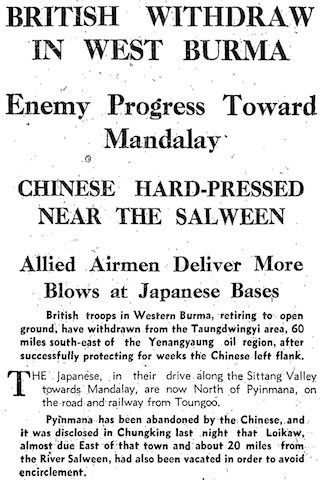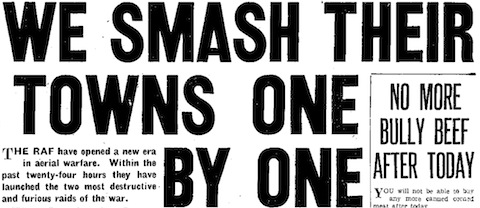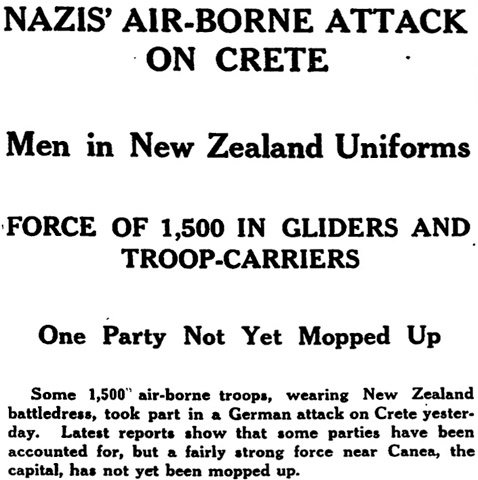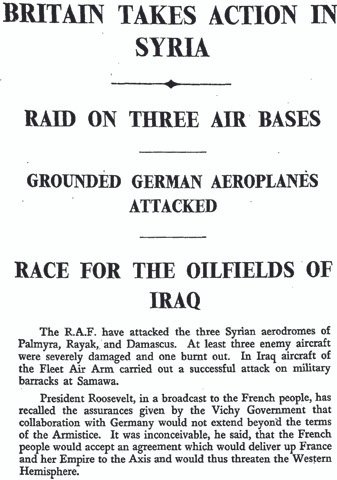
Yesterday's muted announcement of a British retreat in Burma is followed today by more prominent headlines of a further withdrawal, albeit this time in the Taungdwingyi sector. But while the front page of the Yorkshire Post (above) grimly declares that
OUR retirement through Central Burma is bringing us nearer the plains of Mandalay and the defence of Northern Burma
it immediately goes on to find hope in yesterday's revelation that US Army troops were already in India. It is suggested that this may in time develop into one of America's major fronts against Japan. In the meantime, though, hard fighting will be necessary to protect the Burma Road which is threatened by 'a Japanese force of tanks, guns and infantry', though on the Post's analysis this is to stop Chinese reinforcements reaching Burma rather than Allied supplies reaching China. Further withdrawals are likely British troops will likely have to fall back on Meiktila.
Present policy is to deny the enemy the high ground in the North and keep him on the lower flats until the rain breaks and floods the river valleys.
The Times notes that Japan has been aided by 'traitorous Burmese' (5) and has the advantage of being able to use two good roads from the east, whereas communications between India and Burma are poor. Still,
In difficult circumstances our troops have never weakened, whatever the strain. Whenever the call has come, fatigue has been forgotten. Gurkhas, Baluchis, Frontier Force Rifles have vied with British units in courage and resolution. No finer fighting has been seen in this war. Coolness allied with determination has extricated the force or portions of it from many ugly situations, though not always without regrettable loss in men and material.
It's probably easier to forget the fatigue of the troops in Burma from the vantage point of London than it would be on the spot!
...continue reading →









